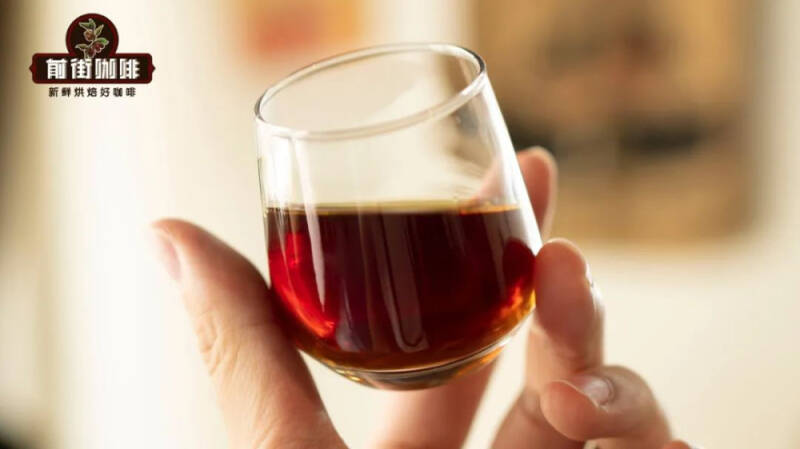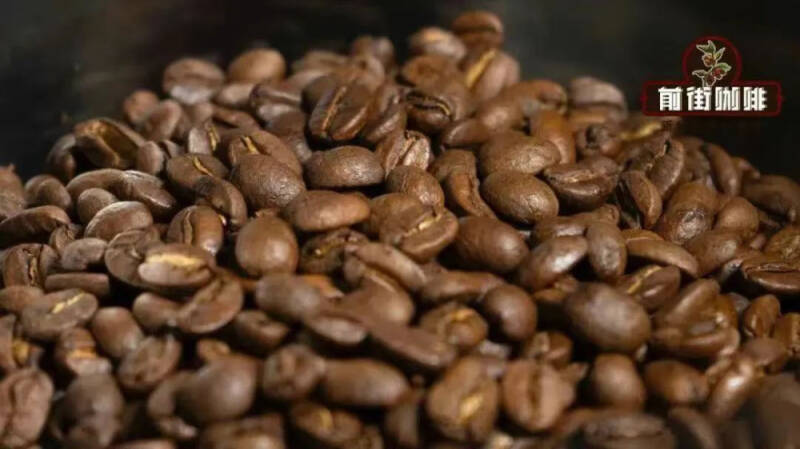What's the difference between decaf, decaf and regular coffee?
For some time in the past two years, there was a sudden upsurge of "decaf" in the coffee market. People who can't sleep after drinking coffee because of caffeine intolerance need to find a substitute in order to satisfy their stomachs, and then people will find the wonderful existence of decaf coffee, and it can solve this need very well.

Decaffeinated coffee is a relative concept, not a separate breed. We can directly understand them like this: they are beans with lower caffeine than regular coffee beans!

As we all know, coffee contains caffeine! At present, the most commercially valuable coffee varieties on the market can be divided into two categories: Arabica and Robusta. The caffeine content of Arabica coffee beans is in the range of 0.9-1.4%, with an average of 1.2%; the caffeine content of robusta coffee beans is twice that of Arabica, with an average of 2.2% in the range of 1.8-4%; and it has been found that the caffeine content of the bourbon variety grown on Reunion Island is only 1 inch 2 of that of Arabica, thus giving birth to the name decaf coffee.
The role of caffeine in drinking, caffeine can bring us a refreshing effect, and in the growth and development of coffee fruit, its main effect is to "resist foreign enemies" (disease resistance and insect resistance).
Coffee fruits attract pests to eat, so coffee trees need to secrete caffeine to resist pests. The lower the altitude, the more pests, coffee trees naturally need to secrete more caffeine; the higher the altitude, the more difficult for pests to survive, fewer, coffee trees naturally do not need to secrete too much caffeine. Therefore, we can know that in addition to the variety, the content of caffeine has something to do with the altitude of the plant, which is why the Robusta species have such abundant caffeine.
The type of decaf coffee here does not mean bean seed ow, but refers to the production of decaf coffee. Decaf coffee is produced in two ways: natural growth and artificial later stage! At this time, a friend asked a question: why should it be artificially cultivated when it can grow naturally?
The thing is, due to the low content of caffeine, it is less resistant to insects and diseases. High altitude does not mean that it is disease-free and harmless, so the cultivation of decaf coffee can be said to be very difficult and was once on the verge of extinction. Since it is so difficult to plant, the final harvest must be small, and the market demand for low-cause coffee is increasing. Therefore, people need to use the late decapitation method for conventional coffee fruits to obtain low-caffeine coffee in large quantities to meet the needs of the market. Therefore, now the low-caffeine coffee on the market generally refers to artificial decaffeinated coffee!
Artificial decaffeination is due to artificial decaffeination, caffeine can be eliminated completely, so the caffeine content of these low-caffeine beans will be more rare. According to the EU standard for this type of caffeine, the caffeine content is no more than 1% of raw beans! The FDA standard of the US Food and Drug Administration is eliminated to less than 3 per cent of the original caffeine, which is actually similar to the EU standard.
The methods of artificial deconstruction are mainly divided into three categories, namely, supercritical carbon dioxide treatment, Swiss water treatment and indirect / direct solvent treatment. Among them, the Swiss water treatment method is currently the most mainstream treatment of decaf coffee, so let's take a brief look at what kind of treatment it is.
Swiss Water treatment method Swiss Water treatment method was developed by Swiss company Coffex in the late 1970s! The operation of this method is to soak the raw beans in hot water, and the coffee beans will begin to remove some of the caffeine when they are soaked, and then people will filter the soaked solution with activated carbon, and then pour it back into the coffee beans after filtering. in order to achieve the purpose of eliminating caffeine. However, in addition to caffeine, there is also a loss of coffee flavor.
What's the flavor of decaf? Whether artificial or natural, decaf coffee does contain much less caffeine than regular coffee, but it is mediocre in terms of flavor.
As mentioned earlier, artificial decontamination will be taken away with the flavor. In addition, caffeine is one of the main contributors to the bitterness of coffee, which plays a role in maintaining balance and improving the taste. When there is no blessing in the taste of bitterness, coffee will not have a rich level of experience and is relatively simple.
-END-
Front Street Cafe
No. 10 Baoqian street, Yandun road, Dongshankou, Yuexiu district, Guangzhou, Guangdong province
Important Notice :
前街咖啡 FrontStreet Coffee has moved to new addredd:
FrontStreet Coffee Address: 315,Donghua East Road,GuangZhou
Tel:020 38364473
- Prev

Hot search on celebrity endorsements, coffee brand business war begins?!
▲ Click to follow | Daily boutique Coffee Culture Magazine Coffee Workshop this morning, Kudi announced a new spokesman and went to the new perimeter, which successfully attracted a large number of fans to place orders for their stars, for fear that they would not be able to grab the perimeter too late, which also led to the explosion of orders in many Kudi stores and even had to be closed temporarily because of too many orders.
- Next

Where does coffee's sweetness come from? What is sweetness? What is the difference between the sense of smell before and after the nose?
The thing is, the last time a guest came to the store and drank the coffee from the front street, he asked such a question: "Boss, is your cup not clean, otherwise the coffee is so sweet?" Scared into the front street, he sprang up and made a new cup and handed it to the guest, only to find that it was because of the coffee.
Related
- What grade does Jamaica Blue Mountain No. 1 coffee belong to and how to drink it better? What is the highest grade of Blue Mountain coffee for coffee aristocrats?
- What are the flavor characteristics of the world-famous coffee Blue Mountain No. 1 Golden Mantelin? What are the characteristics of deep-roasted bitter coffee?
- Can I make coffee a second time in an Italian hand-brewed mocha pot? Why can't coffee be brewed several times like tea leaves?
- Hand-brewed coffee flows with a knife and a tornado. How to brew it? What is the proportion of grinding water and water temperature divided into?
- What is the difference between Indonesian Sumatra Mantinin coffee and gold Mantinin? How to distinguish between real and fake golden Mantelin coffee?
- What does bypass mean in coffee? Why can hand-brewed coffee and water make it better?
- Unexpected! Ruixing Telunsu lattes use a smoothie machine to foam milk?!
- % Arabia's first store in Henan opens into the village?! Netizen: Thought it was P's
- Does an authentic standard mocha coffee recipe use chocolate sauce or powder? Mocha Latte/Dirty Coffee/Salty Mocha Coffee Recipe Share!
- What is the difference between Vietnam egg coffee and Norway egg coffee? Hand-brewed single product coffee filter paper filter cloth filter flat solution!

